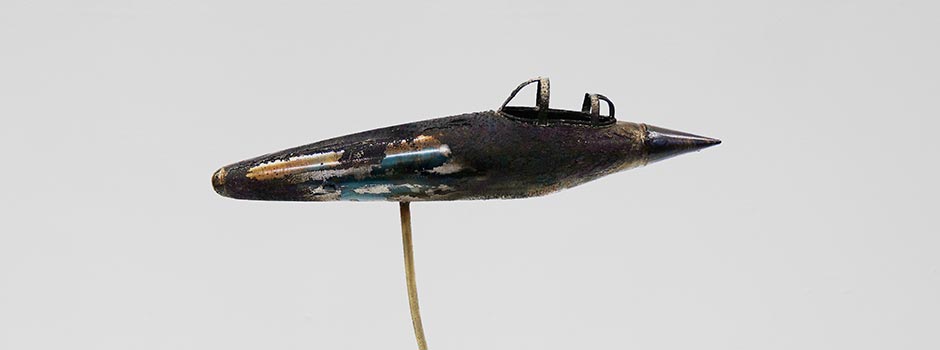
ART EXHIBITION AT THE THIRD LINE IN DUBAI (Sep 24 – Nov 8, 2014) ‘The Return Project’ by Babak Golkar
Sep 27, 2014 Exhibition

Babak has developed a distinct practice that engages critical investigation and renegotiation of spaces between cultural and socio-economical registers. With 'The Return Project,' the artist seamlessly operates inside, and positions his work within, the parameters of a commercial system, interjecting the value constructs governing the contemporary art world. The project dismantles the artistic object and the artistic persona within their own contemporary systemic conditions by skewing the established points of references and relationships that seemingly authorize how and where the true value of art resides.
An object is purchased from a store and brought to the studio for photo documentation. The object is then dissected, collaged and reconstructed into a new consumer article and photo documented in its new state. The two photographs, forming a diptych, are printed in the same scale as the original object. Throughout the process original tags and labels are kept intact. The new object, accompanied by the tags and receipt are then returned to the store for a full refund. The store’s return policy (often 7-10 days) determines the timeframe for the studio process. The returned object – that is, the art object - enters and circulates in the inventory of the store and is once again available for sale, but at the store’s determined price. The leftover cut-off pieces from the reconstruction process are reassembled to form a residual object to accompany the diptych. A small gesture in the large scheme, each action is planned and executed around a particular concept and is autonomous. Aside from the method that determines the project, each piece/action zooms in on a contemporary issue at stake, ranging from geo-politics and global economy to cultural shortcomings and art historical limitations.
Taking a stance, yet equally embracing the inherent anonymity, 'The Return Project,' operates within and disrupts the limits of policies in systems that offer goods in a competitive market. 'The Return Project' employs notions of performance through two, often disproportionate, contexts – that of everyday retail and the rarefaction of the gallery context.
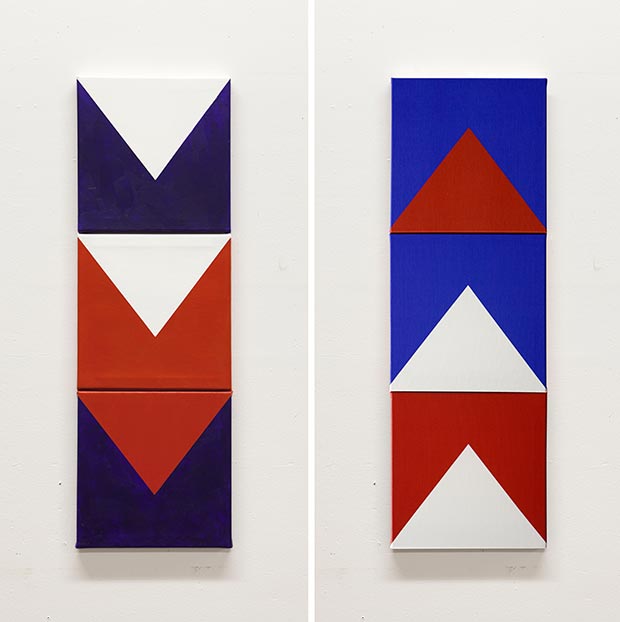 L: Babak Golkar / Circa 1919, Circa 2014. 2014, Diptych c-prints on canvas, 25x76 cm, After / R: Babak Golkar / Circa 1919, Circa 2014. 2014, Diptych c-prints on canvas, 25x76 cm / Courtesy of the Artist and The Third Line
L: Babak Golkar / Circa 1919, Circa 2014. 2014, Diptych c-prints on canvas, 25x76 cm, After / R: Babak Golkar / Circa 1919, Circa 2014. 2014, Diptych c-prints on canvas, 25x76 cm / Courtesy of the Artist and The Third Line
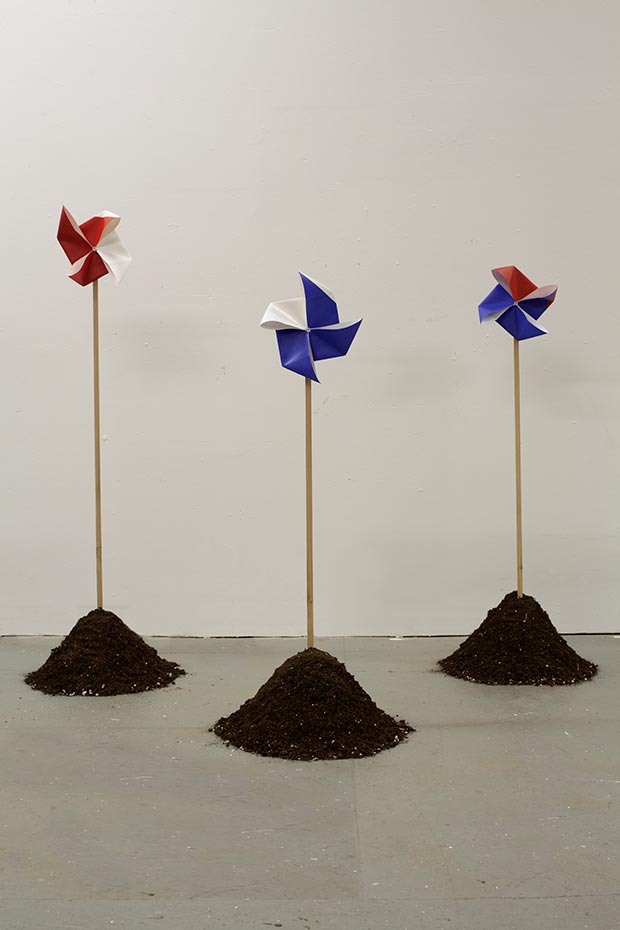 Babak Golkar / In Memory Of, 2014. Canvas cut-out from the original stretched print, cedar stick and top soil. Dimensions variable / Courtesy of the Artist and The Third Line
Babak Golkar / In Memory Of, 2014. Canvas cut-out from the original stretched print, cedar stick and top soil. Dimensions variable / Courtesy of the Artist and The Third Line
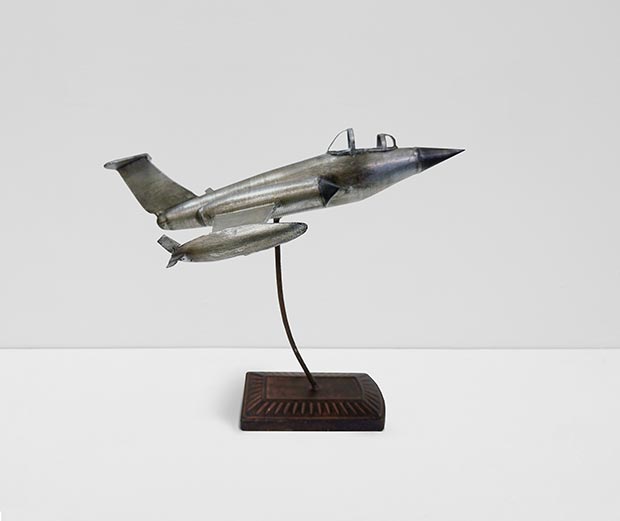 Babak Golkar / Backyard Wars, 2014. Diptych c-prints on metallic paper, mounted on aluminium. 62x51 cm. Before / Courtesy of the Artist and The Third Line
Babak Golkar / Backyard Wars, 2014. Diptych c-prints on metallic paper, mounted on aluminium. 62x51 cm. Before / Courtesy of the Artist and The Third Line
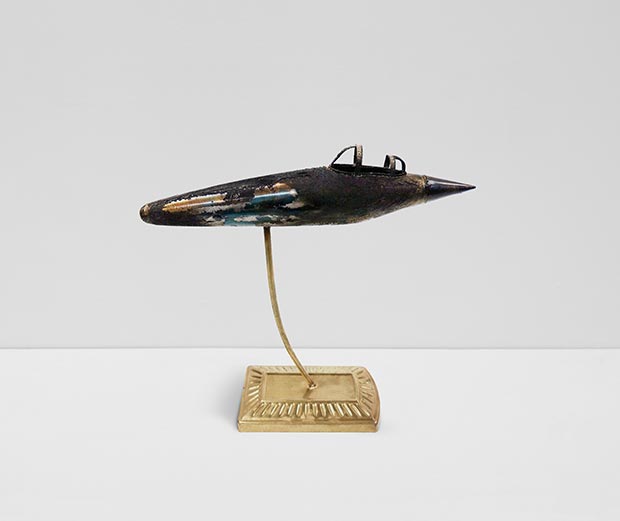 Babak Golkar / Backyard Wars, 2014. Diptych c-prints on metallic paper, mounted on aluminium. 62x51 cm. After / Courtesy of the Artist and The Third Line
Babak Golkar / Backyard Wars, 2014. Diptych c-prints on metallic paper, mounted on aluminium. 62x51 cm. After / Courtesy of the Artist and The Third Line
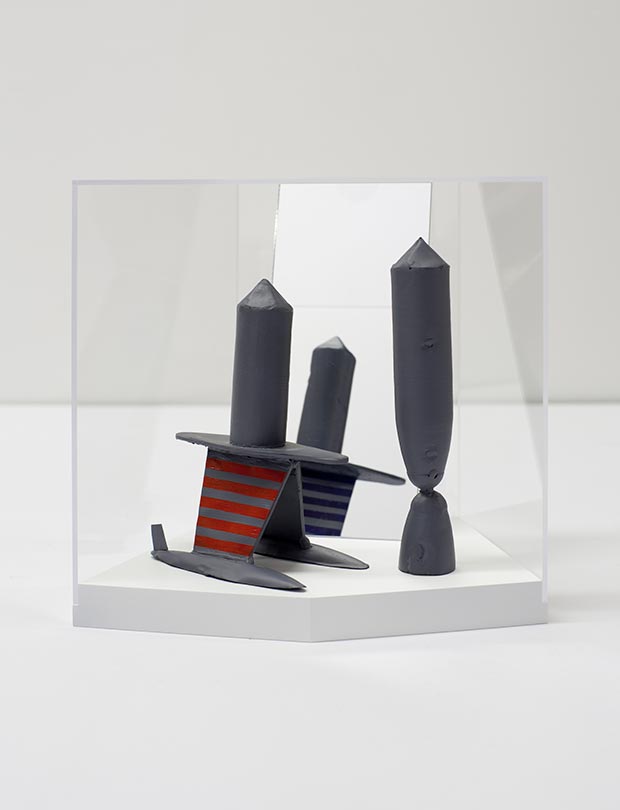 Babak Golkar / A Monument to the Cold War, 2014. Painted cut-off metal, acrylic casing, wooden base, 20x20x20 cm / Courtesy of the Artist and The Third Line
Babak Golkar / A Monument to the Cold War, 2014. Painted cut-off metal, acrylic casing, wooden base, 20x20x20 cm / Courtesy of the Artist and The Third Line
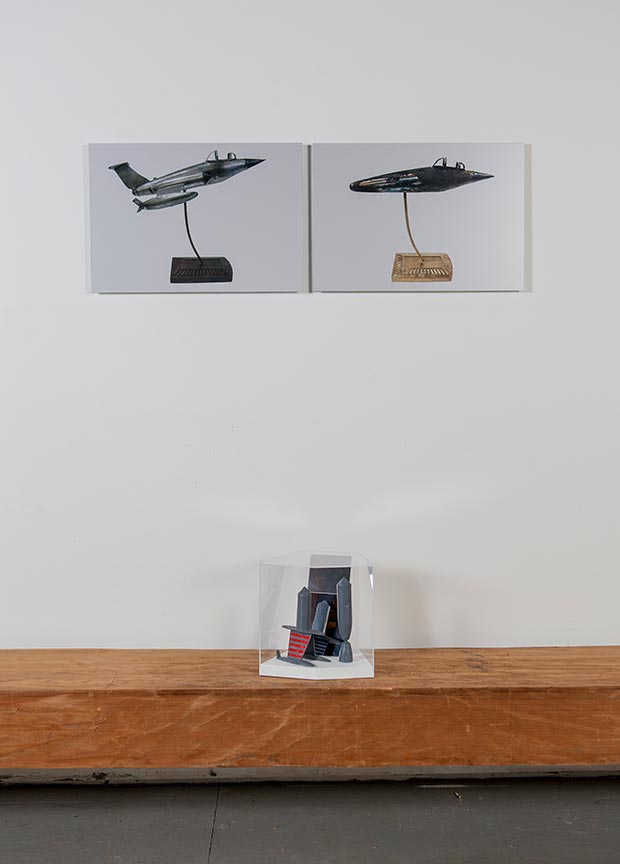 Babak Golkar / Backyard Wars, 2014. Installation view / Courtesy of the Artist and The Third Line
Babak Golkar / Backyard Wars, 2014. Installation view / Courtesy of the Artist and The Third Line
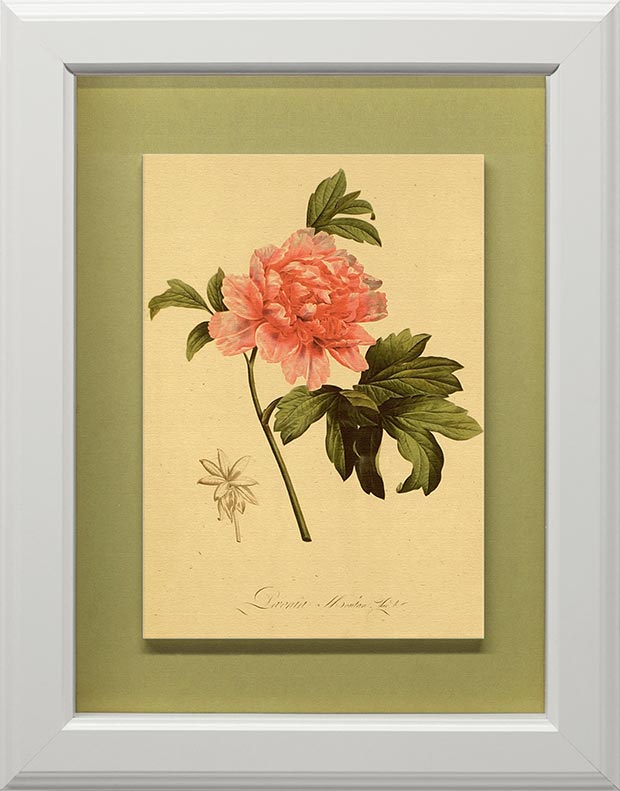 Babak Golkar / Fair Trade, 2014. Diptych c-prints mounted on aluminium, 48x38x3 cm, Before / Courtesy of the Artist and The Third Line
Babak Golkar / Fair Trade, 2014. Diptych c-prints mounted on aluminium, 48x38x3 cm, Before / Courtesy of the Artist and The Third Line
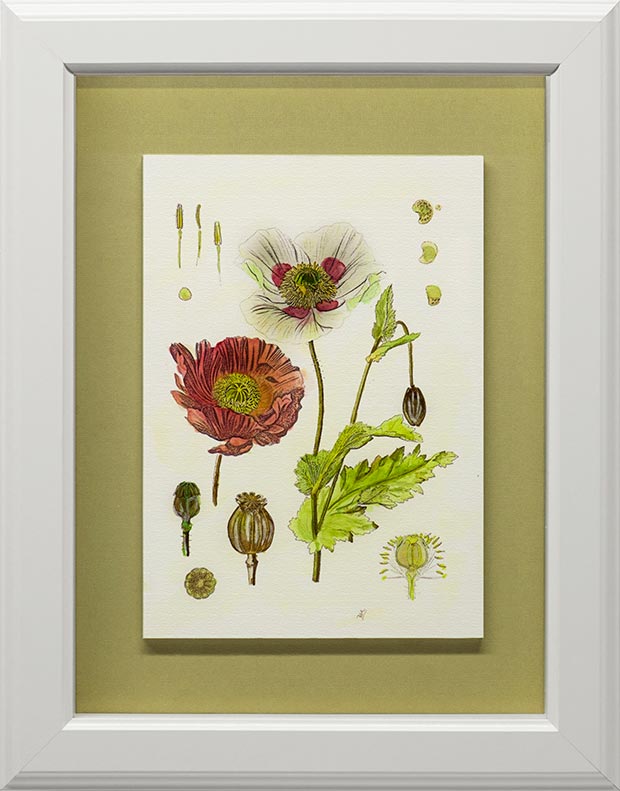 Babak Golkar / Fair Trade, 2014. Diptych c-prints mounted on aluminium, 48x38x3 cm, After / Courtesy of the Artist and The Third Line
Babak Golkar / Fair Trade, 2014. Diptych c-prints mounted on aluminium, 48x38x3 cm, After / Courtesy of the Artist and The Third Line
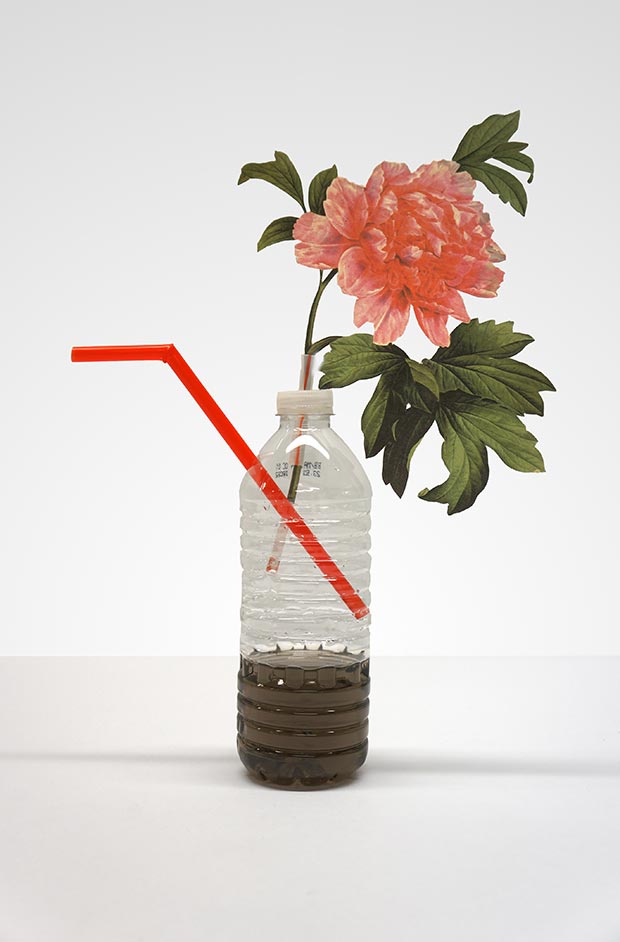 Babak Golkar / Assisted Reconstruction, 2014. Paper cut-out from original framed print (Fair Trade), straw, plastic bottle, water and watercolor, 31x25x8 cm / Courtesy of the Artist and The Third Line
Babak Golkar / Assisted Reconstruction, 2014. Paper cut-out from original framed print (Fair Trade), straw, plastic bottle, water and watercolor, 31x25x8 cm / Courtesy of the Artist and The Third Line
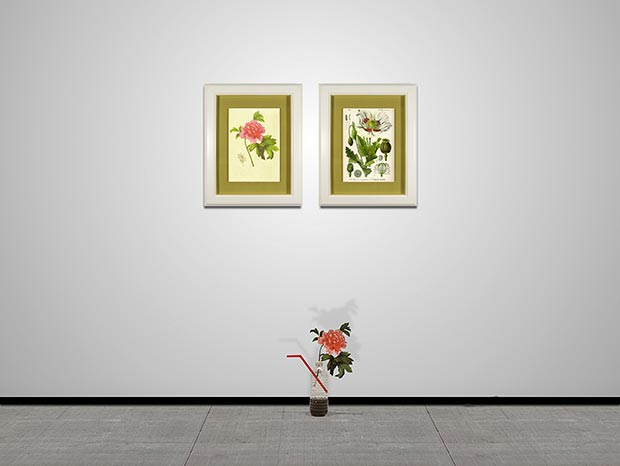 Babak Golkar / Fair Trade, 2014. Installation view / Courtesy of the Artist and The Third Line
Babak Golkar / Fair Trade, 2014. Installation view / Courtesy of the Artist and The Third Line
Babak Golkar was born in Berkeley in 1977. He spent most of his formative years in Tehran until 1996 when he migrated to Vancouver, where he obtained a Bachelor of Fine Arts in Visual Arts from Emily Carr Institute in 2003 and a Masters of Fine Arts from the University of British Columbia in 2006. Since then, Babak has been researching diverse subjects and cultivating a conceptual vocabulary. His subjects of research have especially emerged from an interest in spatial analysis in relation to our contemporary systemic conditions that are overpowering human conditions.
Babak has exhibited in solo and group exhibitions in North America, Europe and Middle East. His most recent solo shows include those held at West Vancouver Museum, Canada; Victoria & Albert Museum, UK; Hilger Modern Contemporary, Austria; Sanatorium, Turkey; he has also been featured in group exhibitions at Edge of Arabia, UK; Brot Kunsthalle, Austria; L’institut du Monde Arabe, Paris; National Museum Adrien Dubouche, France. Babak has been nominated and been the recipient of several awards, including being shortlisted as a finalist for the 2011 Jameel Art Prize. His work will also be featured in the upcoming 2014 Montreal Biennale and a group exhibition at Villa Empain, Brussels, as well as at the Museum Villa Stuck, Germany in 2015. The first ever presentation of Babak’s work in Iran will take place in a solo exhibition at Sazman AB Gallery in Tehran. Babak currently lives and works in Vancouver, Canada.
The Third Line is a Dubai-based art gallery that represents contemporary Middle Eastern artists locally, regionally and internationally. The Third Line also hosts non-profit, alternative programs to increase interest and dialogue in the region. Represented artists include: Abbas Akhavan, Ala Ebtekar, Amir H. Fallah, Arwa Abouon, Babak Golkar, Ebtisam Abdulaziz, Farhad Moshiri, Fouad Elkoury, Golnaz Fathi, Hassan Hajjaj, Hayv Kahraman, Huda Lutfi, Joana Hadjithomas & Khalil Joreige, Laleh Khorramian, Lamya Gargash, Monir Shahroudy Farmanfarmaian, Pouran Jinchi, Rana Begum, Sahand Hesamiyan, Sara Naim, Sherin Guirguis, Shirin Aliabadi, Slavs and Tatars, Sophia Al-Maria, Tarek Al-Ghoussein, Youssef Nabil and Zineb Sedira.
Comments
Add a comment